Metal Materials of DFT® Valves
When it comes to industrial applications, selecting the right valve material is of the utmost importance to ensure process reliability, efficiency, and safety. For over 80 years, DFT® has been at the forefront of high-quality valve manufacturing for diverse industries. We specialize in durable, high-performance check and control valves designed to operate in various temperature ranges and pressurized environments while preventing reverse flow, water hammer, and leakage. Our expert team can help you select the right valve and valve material to best support optimal performance and longevity in your equipment and systems.
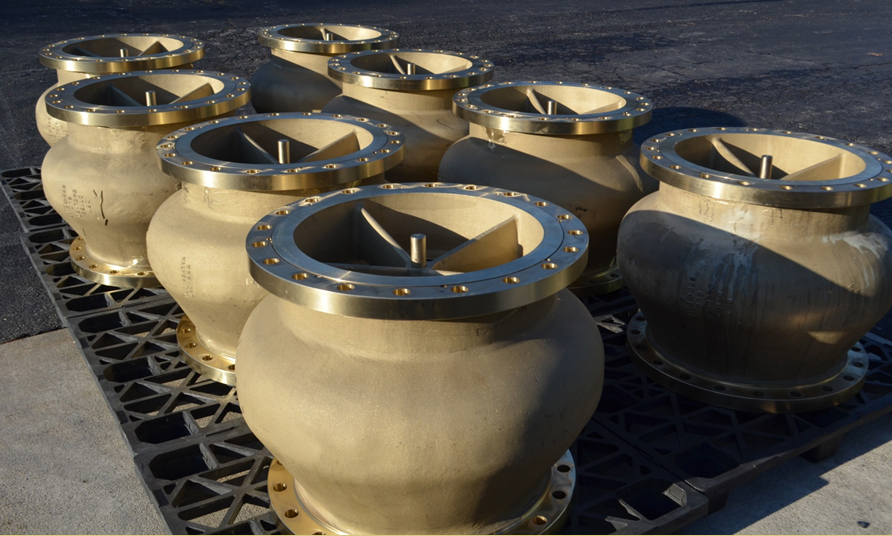
Valve Materials
At DFT®, we work with an extensive selection of metal materials to meet the specific needs of different industrial applications. Our check valve material options include the following:
- Stainless steel. Available in multiple grades, this durable material consists primarily of iron, chromium, and varying percentages of other elements such as nickel and molybdenum. With its strength and resistance to corrosion, stainless steel is suitable in a wide range of applications, particularly for environments in which rust or staining would otherwise be likely to occur.
- Duplex stainless steel. This stainless steel variety combines both ferritic and austenitic steels into its composition, with higher amounts of nitrogen, chromium, and molybdenum than standard stainless steel. This strong, highly corrosion-resistant material is well-suited to rugged applications in industries like the oil and gas sector.
- Carbon steel (WCB). This carbon steel variety is a strong yet economical material option comprised mostly of iron and carbon. Valued for its weldability, it supports diverse industrial applications.
- Low carbon carbon steel (LCC). With less carbon in its makeup than WCB, LCC steel is well suited for applications in low-temperature environments. While it has good ductility, its lower carbon content equates to a moderately strong steel.
- Nickel-aluminum-bronze. A particularly strong alloy of copper with aluminum and nickel, this material is resistant to cavitation as well as erosion. Its ability to withstand corrosion in seawater environments lends it to marine applications.
- Alloy-20. This alloy of iron, nickel, chromium, along with molybdenum and copper, provides superior resistance capabilities to a range of substances and circumstances. Alloy-20 resists physical deterioration like pitting, stress cracks, and crevices as well as corrosion due to sulfuric acid, making it a top choice for chemical processing applications.
- Hastelloy®. The material composition of this family of alloys is based in nickel, with large percentages of elements like molybdenum, cobalt, chromium, and tungsten. Compared to standard material options, they offer high corrosion resistance against chemicals, high acid substances, and gases at high temperatures.
- Monel®. The beneficial mechanical properties of this nickel and copper alloy give it versatile uses in applications like generating aerospace parts, marine engineering, and processing chemicals. It has exceptional resistance to corrosion, alkalis, and acids.
- Inconel®. Inconel® is a group of strong superalloys, the composition of which has a chromium and nickel base. With strength and integrity even under harsh thermal and chemical conditions, they’re valued for their outstanding corrosion, oxidation, and high-heat resistance. Inconel® materials are indispensable for demanding sectors like chemical processing, aerospace, and power generation.
- Stellite®. With its superior hardness and resistance to wear, erosion, and thermal fatigue, this alloy chiefly composed of chromium and cobalt with some carbon and tungsten is an ideal material for valve components. Its durability supports long life cycles and reliable performance in valves for critical aerospace, oil and gas, petrochemical, and power generation applications.
- Teflon® (Polytetrafluoroethylene PTFE). A brand name for PTFE, Teflon® is a chemically inert material that’s popular for being a non-stick, low-friction synthetic fluoropolymer. In addition to chemicals, PTFE is resistant to high heat, remaining stable as a coating material for everything from gaskets and seals to pots and pans.
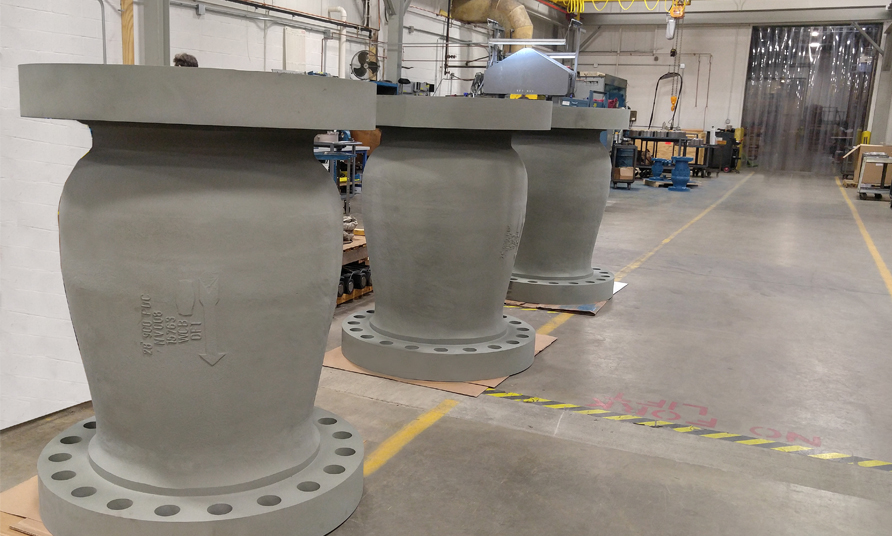
Explore the Versatile Material Options Available at DFT®
DFT® is dedicated to quality and innovation, a commitment that’s reflected in our diverse material offerings. We use quality materials in our check and control valves, ensuring that our products can meet versatile performance requirements and stringent industry standards for safe, reliable operations.
Ready to find the right valve solution for your application? Contact us or request a quote for more information, or review our DFT® Pressure – Temperature Ratings and DFT® Valve Selection Chart to identify the ideal valve for your needs.






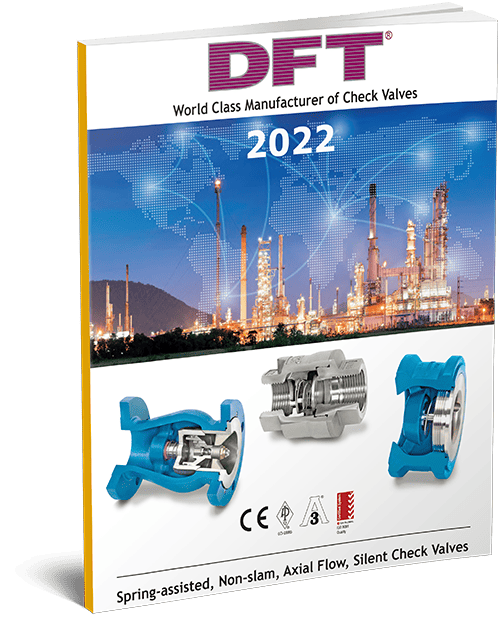


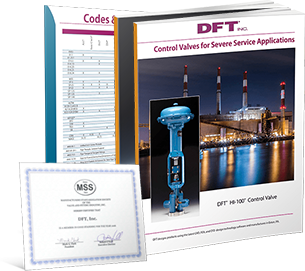
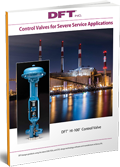
Comments are closed